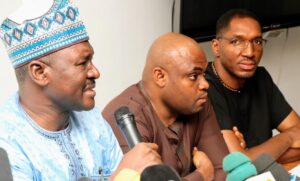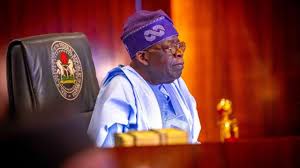
Nigeria has ranked 145th among 180 countries and scored 25 out of 100 points on the 2023 Corruption Perception Index (CPI).
The Civil Society Legislative Advocacy Centre (CISLAC) and Transparency International (TI) made the disclosure Tuesday at a press conference in Abuja.
CISLAC’s Executive Director, Auwal Ibrahim Rafsanjani, explained that CPI sources its data from eight globally acclaimed organisations.

He listed the eight to include Bertelsmann Foundation Transformation Index, Economist Intelligence Unit Country Ratings, Global Insights Country Risk Ratings, PRS International Country Risk Guide, Varieties of Democracy Project, World Bank Country Policy and Institutional Assessment (CPIA), World Economic Forum Executive Opinion Survey (EOS) and World Justice Project Rule of Law Index.
The ranking is an improvement over the 2022 outing, where the country scored 150 among 180 nations, with 24 out of the available 100 points.
This is first CPI since the President Bola Tinubu administration assumed office on May 29, 2023.
Rafsanjani decried what he called electoral and judicial corruption, adding that despite amendment to the Electoral Act, the 2023 general elections fell short of expectations of Nigerians.
According to him, the most populous black nation’s score is below Sub-Saharan Africa’s average of 33 points, stressing that most African countries showed stagnation.
He said: “The independence of the Nigerian justice system needs to be strengthened to shield it from interference. Merit-based promotion and appointments should be carried out rather than political appointments. This will help win back the trust of the citizens in the judiciary.
“There should be a proper integrity monitoring mechanism in the Nigerian judiciary. This should cover whistle-blowing and other reporting channels. It should also cover the disclosure of assets and conflicts of interest.
“Our electoral system needs to be reformed to regain the lost trust of the citizens.
“The Beneficial Ownership Register should be regularly updated with information, and citizens should also be granted access.
“The relevant anti-corruption agencies should ensure that high-profile corruption cases are pursued to their logical conclusion for the benefit of Nigeria and its citizens. They should also explore international alternatives in cases of grand corruption that are transnational.
“Government agencies should disclose as much data as possible about government contracts in line with the proactive provisions of the Freedom of Information Act 2011, the open government partnership and other international commitments Nigeria has signed into.”
Rafsanjani highlighted key weaknesses in the country’s fight against corruption to include: electoral and judicial corruption, corruption in the security sector, opaqueness of public institutions, wasteful expenditure, reward of corrupt and questionable individuals with appointment and failure to prosecute high-profile cases.
Developed by Transparency International in 1995, CPI is a yearly ranking of countries on the prevalence of corruption, based upon surveys by experts and business executives.
The index, which is published yearly and exclusively in Nigeria by CISLAC, serves as a basis for critical reflection on tangible ways to strengthen the fight against graft.
Source Link:
https://guardian.ng/news/nigeria-ranks-145-on-graft-index-scores-25-out-of-100-points/




GIPHY App Key not set. Please check settings